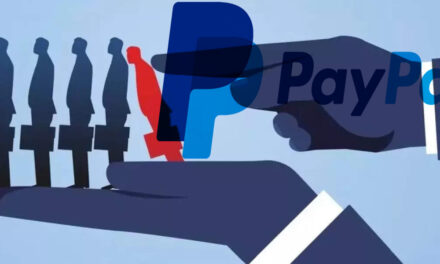During May 2018, technology company giant Amazon set up a meeting with TJ Parker, CEO of PillPack. Companies like Walgreens and CVS were lining up for a chance to buy the trending online pharmacy business. Walmart was already in in-depth talks with PillPack while the pharmaceutical firm Novartis was also looking for an opportunity to negotiate with the Boston-based company. However, Qatalyst Partners’ bankers urged Parker and his PillPack product chief and co-founder Elliot Cohen to go to Seattle to meet with Amazon executive Nader Kabbani.
Kabbani, a Seattle Symphony concert pianist and a 14-year Amazon employee, feels concerned with the pharmacy industry as the pharmaceutical companies tend to take advantage of consumers for profit. During his meeting with Parker, Kabbani discovers that they share the same feeling about the pharmacy industry. Kabbani and Parker talked about their concerns and doubts for so long that their companions eventually let them continue their conversation in private. At the end of the meeting, Parker made his decision to sell the PillPack to Kabbani’s Amazon.
Amazon revealed its plans to buy PillPack for $753 million in an announcement on June 28, 2018. With their acquisition of PillPack, Amazon holds the pharmaceutical company that delivers medications to consumers at their home as an alternative to them running up to the nearest drugstore for their prescription. PillPack also has automatic refills and customer support that is available all day. The ordered medications also come with white packets to help people remember that they need to take them.
Amazon’s extension to the pharmacy industry gives its competitors a worrying situation. Walgreens and CVS shares took a hit after Amazon entered the toiletries and household goods market, but Amazon’s successful acquisition further extends the Seattle-based company’s dominance over its rivals. Amazon’s worldwide consumer business head Jeff Wilke states in a press release that the negotiations between his company and PillPack serve as a way to help people save time and simplify their lives.
Parker is a son of a pharmacist from New Hampshire that has big dreams for his start-up business. Parker’s plans for PillPack include his goal of reaching the $1 billion mark by 2020 in terms of revenue and trying to secure insurers to make sure that the services have a wider reach. Also, Parker hopes to improve PillPack’s technology to serve consumers more efficiently.
After earning $100 million in 11 months, Parker remains the CEO of PillPack. However, PillPack is now under the Amazon company. The PillPack website directs users to the Amazon page that introduces Prime members to the services of the new acquisition. With his business now under the Amazon umbrella, Parker becomes the latest poster boy for the multinational company’s plans to enter the prescription market scene that currently represents the most significant and most overwhelming lead in the retail sector.
CNBC approached a dozen of PillPack employees, investors, and people close to the founders for the story. However, the people interviewed asked CNBC not to disclose their names in confidentiality talks. Both Parker and Cohen were made unavailable for interviews, and the two have yet to speak in public after the announcement of the deal. Amazon, along with Kabbani, has yet to respond to the story.
Amazon’s Attempt for Expansion
According to health data provide IQVIA, the US is spending about $500 billion for prescription medications annually. The figures also witness a rise of 7% every year. According to the Centers for Disease Control and Prevention, about 60% of adult Americans are suffering from a chronic illness like cancer, diabetes, and heart disease, with 40% of them having two or more.
Pharmacy chains like Walgreens and CVS are currently dominating the retail prescription drug market. Pharmacy benefit managers also benefit from playing a part in negotiating drug prices from drug distributors to independent pharmacies. Despite announcing the acquisition of PillPack, Amazon has yet to reveal its plan to make waves in the prescription market. However, Amazon has a high-growth business that uses the revenue to purchase inventory and a workforce that amounts to over 800 people, which are both similar to the system of a retail store.
Amazon already has its space in several other markets like household products. The company also plans to establish brands for necessary items like toilet paper, towels, batteries, and light bulbs. After absorbing PillPack, Amazon will give Prime members an option to skip the drive to the nearest pharmacy store for an online delivery placement.
Since its inception, PillPack is working hard to attain the product shipping licenses it needs to deliver in the US States except for Hawaii. The company also tries to be more efficient with refilling, pill sorting, and dispenser production to make it easy for consumers. PillPack also works with its insurers for the benefit of the customers. PillPack investor Fred Destin describes the pharmacy start-up business expensive and complicated but with potential to grow in terms of profit. Jeff Bezos, the CEO of Amazon, believes that PillPack’s profitability, technology, and regulation is a business suited to help his company become a player in the prescription market. Bezos already has experience with the industry during the 1990s when he was a board member for the online pharmacy, Drugstore.com. Amazon invested in Drugstore.com, while Walgreens bought the company in 2011. Five years after the $429 million acquisition, Walgreens shut Drugstore.com down.
The prescription market will be a challenging venture for Amazon to dominate. PillPack needs to strengthen its relationships with CVS-owned PBMs like Caremark and Express Scripts to gain more customers who try to get their prescription drugs through insurers. Both Amazon and PillPack already pose a threat to the dominant prescription market companies even before joining hands. Amazon’s impact in the distribution sector can force drug manufacturers to lower prices, which means that the pharmacies will be ceding control to the company. Meanwhile, PillPack’s continual growth can take a considerable portion of market shares, giving prescription market incumbents concerns over their hold on the sector.
Bain Capital Ventures health technology investor Yumin Choi believes that Amazon’s acquisition of PillPack further challenges pharmacy businesses to up their game. Choi adds that Amazon made the right decision to buy the company that PBMs perceive as a threat.
Amazon has to deal with a lot of problems before gaining control of the prescription market. In the first few years, the company will have to hire insurance companies, medical records providers, and physicians that do not have experience with the company and engage in a new system. While Amazon’s acquisition of PillPack may help customers with getting their medicines more efficiently, the company may still find delays and issues with the internal process. Nephron Research Equity Analyst Eric Percher claims that Amazon will not be able to control how much their new venture will change the traditional routine between pharmacies and patients. Percher also believes that Amazon will affect the interaction between the customer and the pharmacy supply chain.
Parker and Cohen’s Journey to Building PillPack
Massachusetts Institute of Technology healthcare innovation adviser Zen Chu states that TJ Parker does not look like an executive seeking to take down the influential players in the pharmaceutical industry by creating Pillpack. Chu also adds that Parker looks more like a band member with his thick glasses, blonde hair, and a scruffy beard. However, Parker has pharmacy business running through his veins as he follows in his father’s footsteps. In his family-owned pharmacy in New Hampshire, Parker used to check the pill bottle labels while also delivering prescription medicine to nursing homes and other facilities.
Parker pursued pharmacy school during his time at Massachusetts College of Pharmacy and Health Sciences. He would also visit events at MIT to find fellow students working on innovative healthcare technology. In one of the events he attended, Parker met Cohen, a University of California computer science graduate trying to pursue business school. Cohen was a co-founder of Hacking Medicine, a program that allows students to participate in necessary medical entrepreneurship.
Parker pitched the idea of starting PillPack to Cohen, but the latter was not entirely on board with the idea. However, Cohen changed his mind after seeing his father struggle to maintain his medications after a quadruple bypass heart surgery. Cohen and Parker created a prototype for the Hacking Medicine hackathon in 2012 and received checks from early investors Zen Chu and Katie Rae.
By 2014, Pillpack started to function, and Parker’s father became one of the first pharmacists in the company’s New Hampshire headquarters According to former PillPack analytics director AJ Resnick, Parker did not like how the local pharmacy is handling medicine, believing that the drug stores are reminding customers that it supplies them with the key to curing their diseases. Parker wanted to develop a pharmacy experience that does not rub reminders on people’s faces that they are sick.
PillPack struggled during their first years as they tried to file for distribution licenses in different states while opening retail stores to connect with PBMs. The company also had problems in advertising after Facebook and Google ads labeled it as a drug manufacturing company instead of a pharmacy store. Fortunately, PillPack investor Kevin Colleran was part of the ad sales group of Facebook and cleared the company’s reputation. The social media platform helped PillPack grow into a stable business.
Before the deal with Amazon, PillPack was expected to have over $299 million in revenue that doubles annually. For a company founded five years prior, PillPack is receiving higher demand compared to other pharmacy stores during the same time frame.
However, PillPack was losing over $6 million monthly due to low-profit margins and expansion costs. One of the reasons behind the high expenses is the development of the PharmacyOS software system, which PillPack created to automate prescription renewals, provider authorization, notification alerts, and insurance billing processes.
Parker was aware of Amazon’s interest in his expanding company and that the multinational business is seeking a way to enter the prescription market. Parker found out that Amazon was also trying to test healthcare products like over-the-counter prescription medicine and at-home DNA tests. Parker knew that Amazon would soon become a player in the pharmacy sector and chose to be an ally. PillPack needed capital to stay alive in the industry despite raising $115 million in 2016. With the acquisition, PillPack will likely flourish under Amazon.
Amazon amassed over $230 billion in total sales the previous year. The acquisition of PillPack will not change the figure enough as the company remains a small-time business. However, PillPack can take advantage of Amazon’s reach in delivery networking, which is one of the company’s biggest strengths.
PillPack users pay about $5,000 in revenue for the company’s services, which is more than Amazon Prime member’s average spending of $1,300 annually. The partnership will help Amazon target older customers, who may need PillPack’s services more than adults and kids.
The Benefits that Amazon Can Provide for PillPack
Amazon is currently using PillPack to gain interest from a selected group of Prime members. However, Amazon can do more for PillPack than just promoting its pharmaceutical services to Prime subscribers. Insurers are currently in talks with Amazon regarding mail-order service for PillPack users, which will help Parker’s company attract new customers by the millions. Following the acquisition, health insurance company Blue Cross Blue Shield offered their services for PillPack’s customers. The services include home delivery and medication dispensers.
Amazon’s intimidating status can also help PillPack prove to PBMs that it is capable of successfully delivering prescription drugs to homes despite being a start-up business. Express Scripts made a threat to eliminate PillPack from its network in 2016, which would cause the company to lose nearly half of the customers. Former White House Deputy Chief of Staff Jim Messina reveals that there were attempts to force PillPack out of the industry. Express Scripts’ actions stem from PillPack’s contract violation, which orders it to sell medicine as a physical retail drugstore instead of an online delivery business. Despite the misunderstanding, PillPack managed to convince Express Scripts to agree to the company’s mail-order service. Express Scripts spokesman Brian Henry shares that PillPack needs to follow regulations and practices that are within the contract agreement, but Parker remained true to his plan to change modern pharmacy. Parker’s aggressive behavior helped attract Amazon to his company. Roman CEO Zachariah Reitano states that Parker helped improve the average consumer’s position in the prescription market.
Amazon’s Next Steps
PillPack is only one part of Amazon’s grand plan to enter the health care industry. Amazon is currently engaged in talks with Berkshire Hathaway and J.P. Morgan Chase to improve health care and lower costs in their project titled Haven. The company also plans to provide health clinics for employees. Amazon’s Web Services also tries to put medical records on its data. Finally, Amazon is holding future projects aimed at cancer research and telemedicine.
Despite Amazon’s engagement in health care and pharmacy industries, it remains without a clear plan to enter the market. For PillPack, the objective is to maintain its growth as a company. Eventually, PillPack will concede control of the brand to Amazon.
Amazon is currently hiring staff and pharmacists for PillPack to serve more customers. Over 50 PillPack jobs are available in career sites, which presently targets employees in Boston. Among the positions open are visual designer, packing and shipping specialist, and software developers. PillPack is also trying to promote the company by spending on TV and social media ads in hopes of reaching more customers. PillPack is also working on building a pharmacy operation in Phoenix to serve as a distribution center. Most analysts believe that Amazon purchased PillPack because of its selling licenses in 49 states. Kantar, a consulting firm, states that PillPack is a valuable asset for Amazon.
Parker and Cohen remain the leaders of PillPack but are now working closely with Kabbani. The Amazon executive is a logistics expert who can help PillPack expand in terms of retail. However, Kabbani emphasizes that he is inexperienced with health care, which plays right into Cohen and Parker’s strengths. Cohen focuses on PharmacyOS, which he believes will have a crucial role in PillPack’s growth as a business. Amazon feels interested in the software, which aims to link doctors, insurers, and pharmacists in one network.
PharmacyOS is a move that will help PillPack serve millions of customers, according to Courage Health CEO Stephen Buck. Buck believes that PharmacyOS will put PillPack in a promising position in the pharmacy industry.















